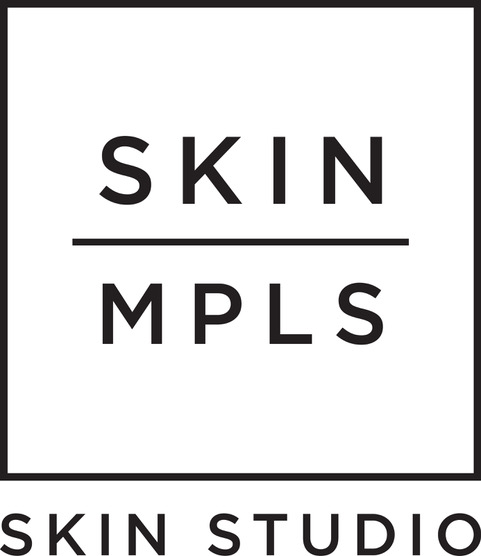What is Medical Skincare?
Ok, we’ve broken down “clean” skincare recently and showed that it is just a made-up label targeted to sell products – so what about “medical” skincare? Surprise, surprise it’s also just a made-up marketing term at the end of the day.
Skincare is a huge industry with minimal regulations on marketing and there are endless claims and words created by crafty marketing agencies. Today we’re breaking down one of the biggest and baddest – the claim that products are “medical grade”.
What makes us think something is “medical grade”? What products do you need a doctor or prescription for? How do you know what strength your products are? And finally, what “medical-grade” products do we grade as skin-worthy? We tackle these questions below to help you navigate the vast universe of skincare.
What do people think of when they think of “medical-grade” skincare?
In a simple answer, we hope you think of skincare given to you by a professional because those products contain higher quantities of high-quality, effective, and active ingredients. But if you were to Google it, you would probably see popular lines like SkinMedica, SkinCeuticals, Obagi, iS Clinical, etc. It’s important to understand that these are not drugs, and the only difference between these product lines and others is where they’re sold at.
Usually, the reason “medical-grade” skincare is sold by professionals is that these products bring more changes to the skin than drug store or beauty store products. They have higher concentrations of active ingredients and using them without guidance could have negative side effects. But, what do we think of these products? While they are a step up from buying your own at the store, most of these lines mentioned above have been bought out by large corporations that rely on their original technology and, slowly, over time, the ingredients and formulas have been cheapened to maximize profits. These products are usually more expensive because they can be, not because the ingredients and formulations are expensive. They cater to a market that is already paying for high-end treatments and results are often assumed to be synonymous with high price tags – which isn’t necessarily true.
When do you call the doctor when it comes to your skincare?
There are three things common in aesthetics that require a doctor or nurse practitioner: certain facial procedures, topicals that are considered drugs, and some select skincare lines. A medispa is a spa that can perform procedures injectables by a doctor, nurse, or trained aesthetician and these procedures go deep into the skin. The top layer of skin that we see is called the epidermis and that is what we (at Skin MPLS) are focused on improving. Extreme skin cases require going deeper for results and this is when you want a medispa to perform more invasive treatments that bring stronger results.
Medispas can opt for skincare lines that will only wholesale to doctors or nurse practitioners who then sell it directly to clients. This is simply a choice the skincare line makes to be exclusive, it does not mean the ingredients are stronger than those in products that you can get elsewhere.
Separate from those skincare lines, there are also drugs that are regulated by the FDA. A drug is classified as having a physiological effect when ingested or applied. Drugs, unlike “medical-grade” skincare or cosmeceuticals, need a prescription. An example is the combination of sulfur and benzoyl peroxide in one product requires a doctor to prescribe it – but other skin studios can sell you separate products that contain these ingredients. Pure retinoic acid (Tretinoin) and high concentrations (above 2%) of hydroquinone also require prescriptions. Sunscreen is technically considered a drug and is regulated, but does not require a prescription. There are great cosmeceuticals out there that can transform skin, and we are lucky you don’t need a prescription for all of them as that would be a huge pain.
How to know what to use when you can’t trust labels?
Outside of a few select lines, almost all products can be purchased on the internet – but we highly recommend you don’t do this and instead lean on professionals to help you select what to purchase to put on your skin. Even if you are a skincare junkie or enthusiast, you still will struggle to know exactly what your skin needs and what products actually offer it. Your aesthetician should not just be the person giving you a facial treatment, but also your personal skin guru and consultant. Stronger is not always better when it comes to products and when you see percentages and strengths listed on packages that can mean various things depending on how they are suspended in the other ingredients.
We carry a couple of lines we would consider (in our own words) “medical grade”. Vivant Skincare is the only line we know of that is USP (US Pharmacopeia) certified. This means they use ingredients that are FDA-approved pharmaceutical-grade that are not technically drugs but are far superior to other active skincare ingredients. Vivant chooses to have these standards and it is not easy or inexpensive – yet their products remain affordable and effective. We don’t believe one line can give you everything so we also carry products that suit other needs, and those may not always require “medical” attention.
When grading products, it’s always on a scale. We first assess the ingredients and judge if we would want these things on our skin. Then, we try it and see what results it brings. We also assess the value for the cost of the item. Long story short, it comes down to one question, does this work and, is it worth it? Remember actions always speak louder than words.
